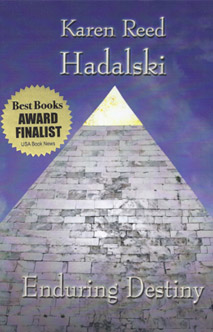I’m late with this week’s blog due to the round-the-clock care my dog, Serena, requires. A serious eye injury and infection has required numerous medical procedures which have not (yet?) worked to heal her.
We’ve only had this old girl a few years but have all come to love her. She’s the only pet I haven’t raised from kitten or puppyhood and this experience has been a totally unique one for me.
Her history, past medical problems, age, etc. are all mysteries. Vets guess her to be about 10 and her behaviors and fears lead me to believe she has endured an unhappy life of neglect and abuse.
Integrating Serena into a family that included a 5 year old, still puppy-like collie and an imperious cat was not easy. But, she worked hard to fit-in and things eventually clicked. (That is, until we adopted a new, 7 week old kitten. Then it was back to square one).
While I certainly didn’t make an imprint on or influence Serena’s developing personality, there were no surprises regarding who she would eventually “become.” She was given her name because, compared to our Odin, she was, indeed, “serene.” Happily, there was no house training or puppy-mischief to worry about.
For sure, this dog had never been indulged. She needed to be taught to play with a tennis ball, that quality dog food was more appropriate and nutritious than table scraps, and that her “place” was with the rest of the family rather than alone in the yard or bathroom–where she self-isolated during her 1st few months with us.
Because she apparently lived such an uneventful and isolated life previously, our old girl savors every experience and kindness with puppy-like zest and appreciation. All it takes is a soft voice, a hug, or singing a song with her name in it to cause her to close her eyes, smile a crooked little smile, and make a throaty–almost purring–sound of contentment.
Her greatest delights are car rides, taking a walk in the woods, and rolling around in the grass with her very own ball in her mouth. When we bought her a bed, she seemed to think she would get into trouble by climbing into it. So, for days, she would eye it longingly, but sleep on the floor beside it, instead. Finally, our coaxing paid off and she now rolls around and stretches out in delight when she beds-down on her own, soft sleeping space each night.
She treasures and parades around with her rawhide bones; and treats–well, an after dinner Greenie or biscuit sends her into a state of ecstasy. Odin has taught her to not be afraid of toys that make noise, and she eventually began to enjoy and share her playthings rather than hoard them.
While I don’t regret raising and nurturing any one of my past or current animal companions from infancy onward, Serena has opened my eyes and my heart to the joys of sharing life with a pet that has a history, but chooses to give herself to you, anyway. I dread the thought of losing my beloved Odin, Lily, Serena, or Chance. But, should the time come when we again find ourselves “empty nesters,” instead of living out our later years devoid of animal companionship, we will look for a pet to adopt that is closer to us in age, energy level, and life expectancy. Thanks to sweet Serena.



